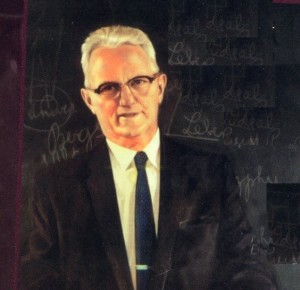Was John the Baptist an Apostle?

jurand / 123RF Stock Photo
I was intrigued by the research done by the Barna Group for the American Bible Society. Since 2011, The American Bible Society has commissioned the Barna Group to conduct a yearly survey called “The State of the Bible.” The survey looks at what Americans believe about the Bible and what role it plays in their lives. The data described here was taken from the 2013 survey. You can review infographics of the surveys results or read the full yearly reports by following the above link.
Did you know that 56% of adult Americans believe the Bible has too little influence in U.S. society today? Only 13% thought it had too much influence. A significant majority of Americans (77%) believed that morality is on the decline. And one in three of them (32%) said that a lack of Bible reading is the primary cause.
What’s with the 45% of Americans who thought that the Bible teaches that God helps those who help themselves? Sorry. That really came from the ancient Greeks.
Four out of five adults (80%) believe the Bible to be a sacred or holy book. The Koran (8%) was the next most recognized sacred book, followed by the Torah (4%) and the book of Mormon (3%). Previous research conducted by the Barna Group in their report “Americans Identify What They Consider ‘Holy’ Books” found that some individuals (less than one-half of one percent) said that even I Ching, Dianetics by L. Ron Hubbard and Mein Kampf by Adolph Hitler were sacred books.
The vast majority of adults (88%) have a Bible in their home. Even those who align with other faith groups (69%) and atheists and adults with no faith (59%) live in a household with at least one Bible. One hundred percent of evangelicals said that they have a Bible in their home; 93% of Catholics. Mosaics, individuals between the ages of 18 and 28, were the age group least likely to have a Bible (79%). Fifty percent of American households have four or more Bibles.
Given several options on how to describe the Bible, more adults believed it to be the inspired word of God without errors, but with some symbolism (27%) rather than believing the Bible was the actual word of God that should be taken literally, word for word (22%). A smaller percentage (15%) thought that while the Bible was inspired by God, it also contained factual or historical errors. Sixteen percent thought it was just another book of teachings written by men that contain stories and advice.
This last reported finding of the survey, captures an interesting tension I see within the evangelical debate over defining what the inspiration of Scripture means today. Sixty-four percent of Americans affirm some sort of inspiration within the Bible. There is significant percentage of literalists (22%); a larger percentage of inerrantists that allow for some symbolism in Scripture (27%); and a notable group who affirms the inspiration of Scripture, but readily acknowledges that it has factual or historical errors (15%). Given the categories of the survey, I’d see myself as an inerrantist that allows for some symbolism in Scripture.
When given true and false statements beginning with, “According to the Bible”, 14% of Americans thought Sodom and Gomorrah were married; 8% though Noah was married to Joan of Arc. And 40% of Americans thought John the Baptist was an apostle; 12% weren’t sure. Hmm … I think we need to spend a bit more time reading our Bibles.









